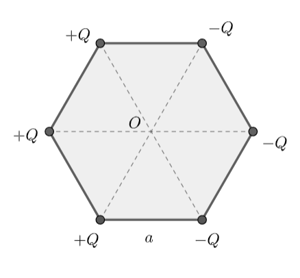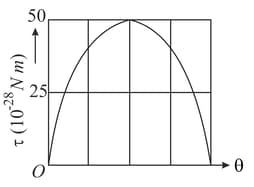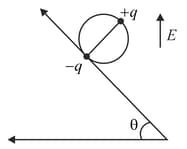K K Sharma Solutions for Chapter: Electric Charges and Fields, Exercise 1: TOPICWISE QUESTIONS
K K Sharma Physics Solutions for Exercise - K K Sharma Solutions for Chapter: Electric Charges and Fields, Exercise 1: TOPICWISE QUESTIONS
Attempt the practice questions on Chapter 1: Electric Charges and Fields, Exercise 1: TOPICWISE QUESTIONS with hints and solutions to strengthen your understanding. Chapterwise/Topicwise Daily Practice Problems (DPP) Electrostatics and Current Electricity NEET solutions are prepared by Experienced Embibe Experts.
Questions from K K Sharma Solutions for Chapter: Electric Charges and Fields, Exercise 1: TOPICWISE QUESTIONS with Hints & Solutions
The magnitude of electric field intensity at point due to a dipole of dipole moment kept at origin is (where, )
Two coaxial dipoles of dipole moments and are separated by a distance The magnitude of electric force on due to is
Six charges are placed at the vertices of a regular hexagon as shown in the figure. The electric field on the line passing through point and perpendicular to the plane of the figure as a function of distance from point is (assume )

A dipole is kept near an infinite line of charge. If the net force on the dipole is zero, then its dipole moment is
An electric dipole is placed in a uniform electric field of magnitude . The graph below shows the magnitude of the torque on the dipole versus the angle between the field and the dipole moment . The magnitude of dipole moment is equal to

Three point charges, and are placed at points and , respectively. The electric dipole moment vector of this charge assembly is
An electric dipole is situated in an electric field of uniform intensity whose dipole moment is and moment of inertia is . If the dipole is displaced, then the angular frequency of its oscillation is
A wheel having mass has charges and on diametrically opposite points. It remains in equilibrium on a rough inclined plane in the presence of a uniform vertical electric field The value of is

